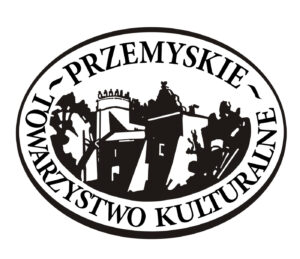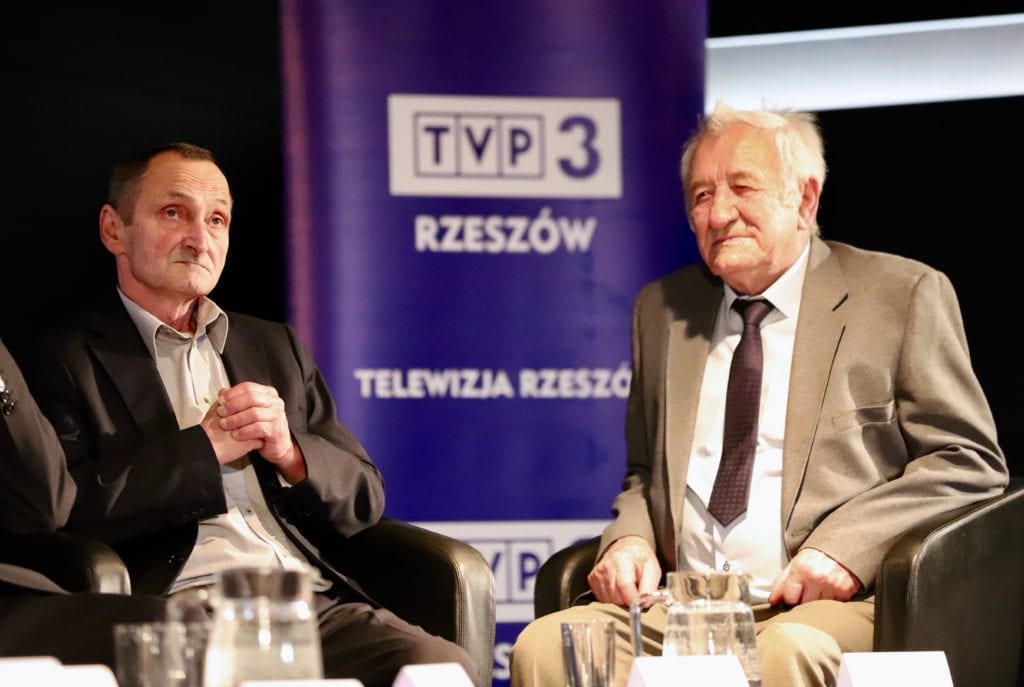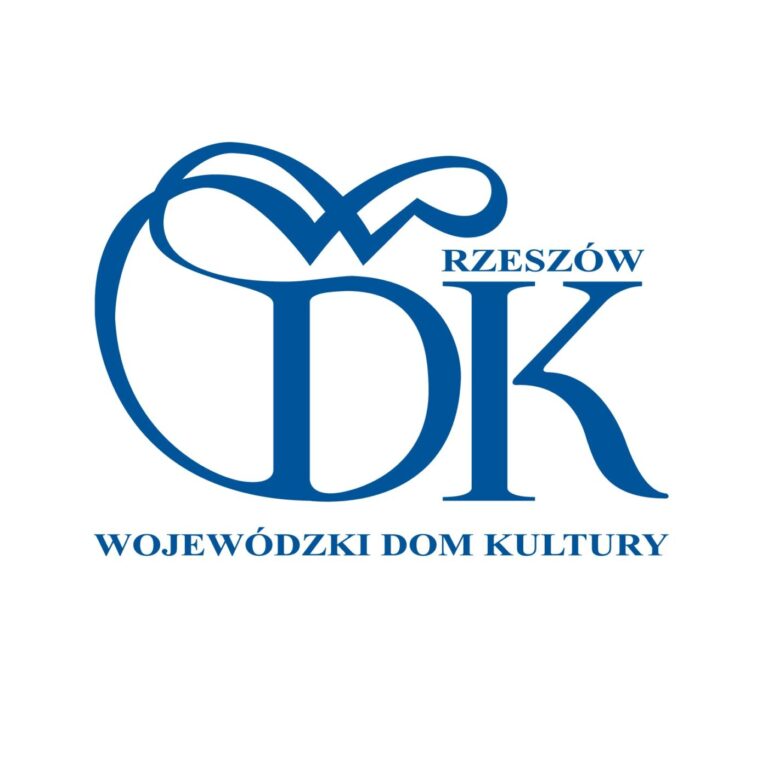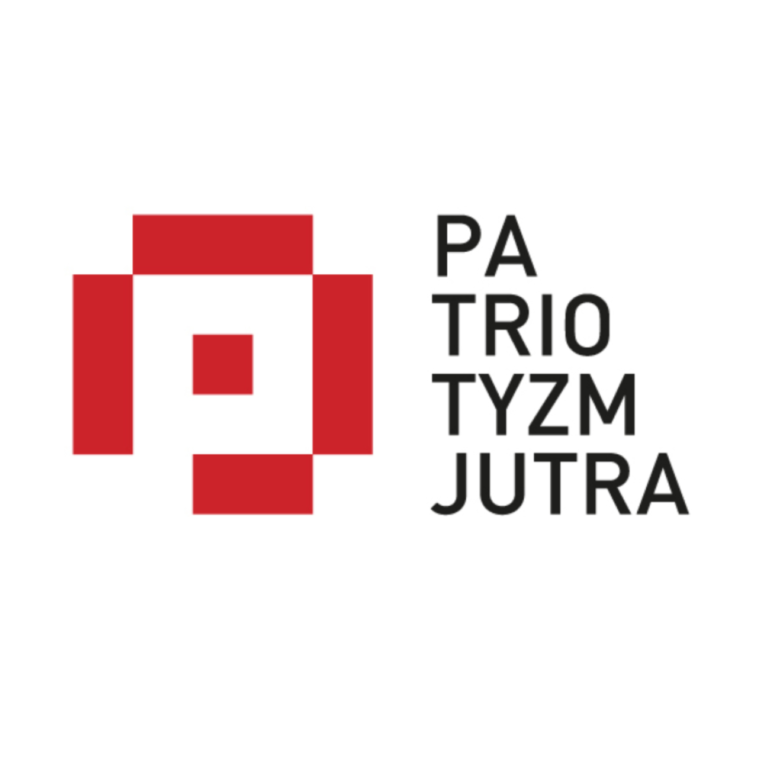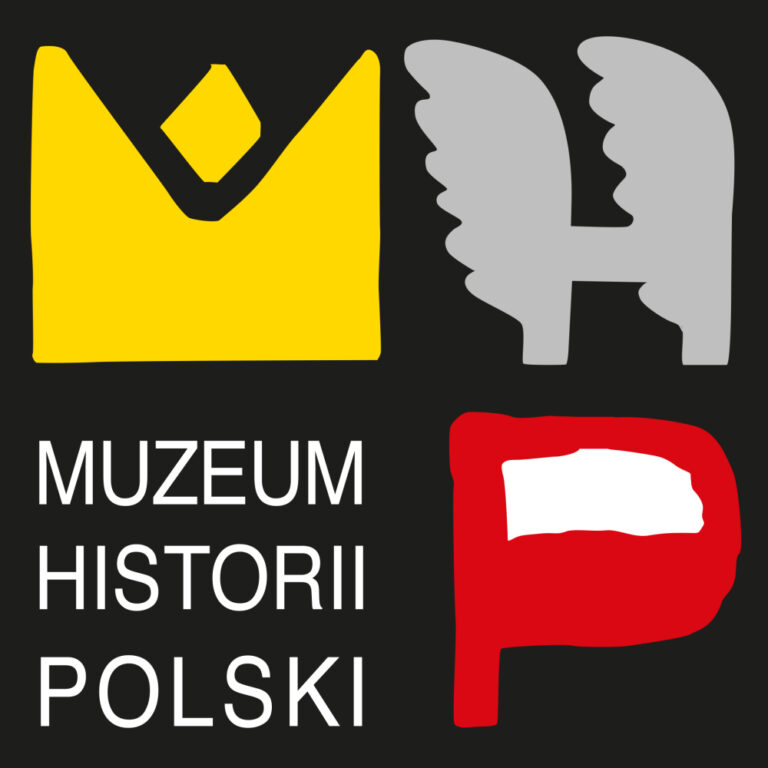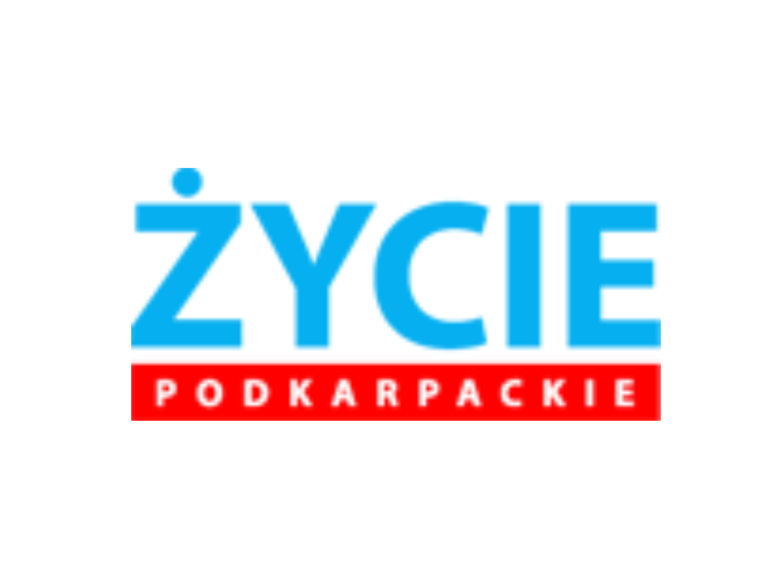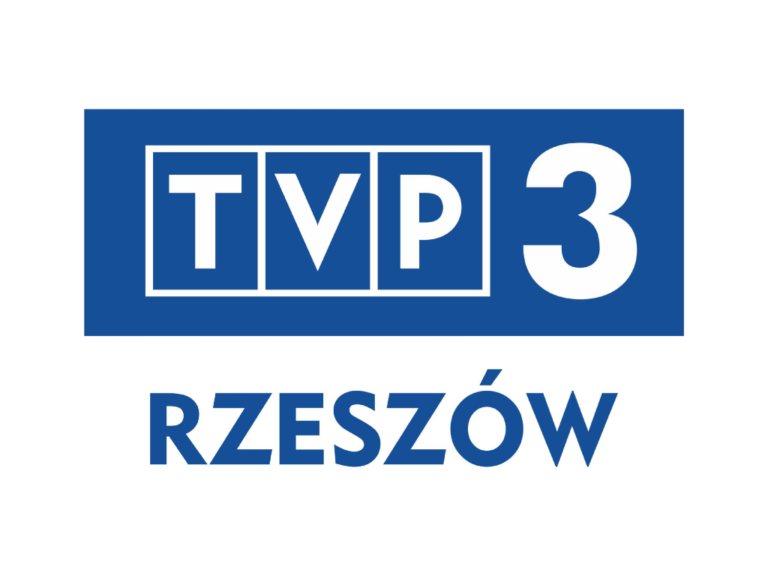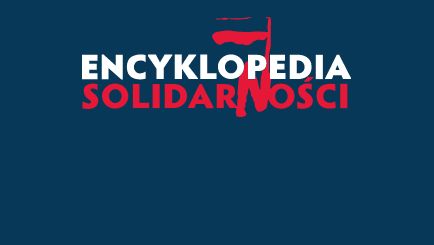
FROM THE ENCYCLOPEDIA OF SOLIDARITY IPN.
Marek Kaminski, born 22 II 1952 in Przemyśl. Graduated from Elementary School No. 4 there 1969-1973 pupil, then after passing the vocational exam typographer (printer) at the Terenowe Zakłady Przemysłu Poligraficznego
https://encysol.pl/es/encyklopedia/biogramy/16557,Kaminski-Marek
.
From the Works Committee to the head of the Solidarity Region
Marek Kaminski:
(He was an ordinary worker and at the same time head of the Solidarity Factory Committee at the Workers' Cooperative. At the first regional congress, he was elected to the board of directors of the Southeastern Region in Przemyśl. His determined involvement-along with several other Solidarity activists-in underground activities during martial law and later, elevated him to the position of head of the Solidarity Region in Przemyśl in the late 1980s).
***
Martial law
When martial law broke out, I was not interned and - in accordance with the union's decision in early December in case of a militia attack - I went to the workplace to declare a strike. The doorman saw me and said: "Marek, run, the secret police are at the plant.". So I went to the Region's headquarters on Stone Bridge. The door of the headquarters at night was smashed by the secret police and left. There were a lot of people around, including Głowacki - a member of the Region Board, Staszek Żółkiewicz - a member of the Region Election Committee, Zygmunt Majgier, Staszek Wilk, Krystyna Osińska - secretary of the Region Board. Surprisingly, the secret police did not take the union banner, there were also duplicators and a lot of documents, so the union activists took them to the Franciscan Fathers. Wojtek Klyzh, vice-chairman of the region, came. We made an appointment for 4 p.m. that day at the Franciscan Fathers.
Fifteen of us came, including Krystyna Osinska, who, incidentally, later turned out to be an agent of the secret police. There was Stanislaw Trybalski, Staszek Baran, Marek Pudlinski (he escaped from "Astra" after the strike was broken up by the secret police), Stanislaw Zolkiewicz, Zygmunt Majgier and others. We are at the temple, until suddenly someone brings news that the secret police are surrounding the church. Zygmunt Majgier (head of the Factory Commission "S" in the Przemysl Housing Cooperative) says: "Come to me in the boiler room.". So, one by one, we slipped out of the church.
In the boiler room of the PSM on Kmiecia Street, behind the church, we gathered: Zygmunt Majgier, Staszek Żółkiewicz, Staszek Trybalski, Zygmunt Pyś, Wojtek Kłyż - vice-chairman of the Region, Krzysiek Prokop, Marek Pudliński - a member of the top leadership of the Solidarity Region, some activist whose name I don't remember, and me. Pudlinski wrote the content of a proclamation calling on the workplaces in the Region to go on occupation strike, someone printed it, and the leaflets were ready. I and Zygmunt Majgier distributed them the next morning (Monday, December 14) at bus stops, mainly among the employees of the Przemysl factories. Later on, someone apparently betrayed or carelessly talked out, because arrested Marek Pudlinski was accused by the secret police of having just written this strike proclamation, for which he received two years in prison.
At the Workers' Cooperative of Invalids, which was a sheltered workshop, we decided only to go on an Italian strike, which we planned for December 16. The day before, the secret police and the commissioner of the workplace warned me not to do any strike action. Nevertheless, the next day we put red and white armbands on our sleeves and the strike action began. Of course, the secret police arrived right away and took me and Stefania Borowska, vice-chairman of the "S" plant committee, away. However, they accused us not of organizing an Italian strike, but of "thievery," that we had supposedly stolen money to sew the armbands. In fact, we took the money for this purpose from a solidarity piggy bank that we put out and people voluntarily made donations. As a result, the plant commissioner fired the vice-chairman from her job and left me, but took away my position as foreman. In addition, there was a court hearing in January 1982, where I was accused of disrupting work at the plant. Fortunately for me, District Court Judge Jerzy Galanty proved to be a very decent and courageous man. He acquitted me, for which the commune later prevented him from making a career in court.
The other day (December 17), Wojtek Klizh and Krzysiek Prokop entered the governor's office with a request for blankets for the protesters. Of course, they were immediately "rolled up" by the "secret police" and instead of blankets they received prison sentences. There was chaos, without any coordination. Mark Pudlinski was caught somewhere. Apparently, someone from the participants of the meeting in the boiler house on Kmiecia Street "let it slip" to the secret police that he was the one who wrote the content of that strike proclamation. As a result, both Pudlinski and Klizh were sentenced to two years in prison, with the former behaving honorably during the trial, and the latter behaving disorderly.
Pig for internees
I wanted to take some action, but I did not know what to do, I was just learning conspiracy, I tried to look for some contacts. Near me on the estate lived two vice-presidents of the Factory Committee from "Polna", which was a thriving center of Solidarity. They, however, were afraid and did not want to talk to me.
I meet Jan ("Mietek") Zrajka, head of the craftsmen's Solidarity of the Przemysl Region, and he tells me: "Mr. Kaminski, we want to donate a pig for the internees." I reply, "Fine, I'll do it."
But how do you get down to processing pigs into sausages and hams yourself? So I go to Rysiek Bukowski (a member of the Regional Board). He, along with seven other Solidarity activists, had been fired from the Military Weapons Plant in Zurawica, so he set up a television workshop for himself. I tell him what the deal is, and Rysiek agrees. So we turned into butchers and after a few days of hard work, sausages, hams, bellies, brawns and puddings were ready. Then we asked Rev. Stanislaw Czenczek to deliver these products of ours to our imprisoned colleagues while serving as priests in the internment centers. And he did, because only priests were allowed to bestow food parcels on the internees.
Underground Solidarity
I meet Staszek Zolkiewicz walking with Staszek Wilk one day in the city. They inform me about a meeting on Dworska Street, in the private apartment of Zygmunt Majgier's family. We meet there: Staszek Wilk, Rysiek Bukowski, Zygmunt Majgier, Staszek Żółkiewicz and me. Well, and we set up an underground solidarity structure.
First we want to find some room needed for activities, and then we will decide on possible forms of our activities. Who has access to the Church? I, together with Staszek Zolkiewicz, applied to Fr. Majcher for Fr. Bishop Ignacy Tokarczuk to receive us. When the bishop met with us at the appointed time, we informed him of the formation of the underground Provisional Executive Committee of the Solidarity Region and presented our plans of action. Bishop Tokarczuk approved them, but at the same time warned us against taking any armed action. After the conversation, held as a precautionary measure while walking, the bishop summoned Fr. Krzywinski and asked him to help us with anything we approached him with, if possible.
In response to a request to provide us with premises for solidarity underground activities, Fr. Krzewinski took us to Fr. Zarych at Holy Trinity Parish in Zasan and instructed him to give us the premises.
In fact, we were given the entire (no longer existing) ground-floor building located next to the church at our disposal, and additionally a catechism room to organize a legal aid office. We were able to do the latter thanks to the help of Rysiek Góral and NSZZ Solidarity legal counsel Kościuk, who provided free legal advice. Free medical advice was provided by a married couple of doctors - Mr. and Mrs. Opalinski. And we had a place to meet. And when donations began to be sent from abroad, they were stored there and then distributed to those most in need.
We agreed that we do not appoint any boss, only the gremium governs, except that we divided the tasks. Zygmunt Majgier took care of distribution. Staszek Zolkiewicz acquired external contacts on the line Rzeszow-Krakow-Katowice-Wroclaw, and I on the line Warsaw-Gdansk-Szczecin. We established contacts with, among others, Czesław Bielecki's Warsaw publishing house "Poleski" - CDN. We also established the Interregional Commission Rzeszow -Stalowa Wola - Krosno - Przemyśl.
Printing and publishing
I, in particular, took up publishing, press and printing. From Szczecin I brought a two-ton poster printing machine to the Eagles. I managed to cross the whole of Poland without a road check, but in case of emergency I had money to bribe the cops, who at that time took everything. The railroaders sent me a huge crane at night to remove the printing machine from the truck and put it in the building. We had to do this by punching a huge hole in the wall, which we immediately bricked up.
I created a network of underground printing and publishing places in private apartments. The publishing house "CDN" gave me reprints from the "second circulation" for printing, which I printed with the signature "CDN - Przemyśl". Ubecy searched the whole of Przemysl and could not find anything. It was all in play and there was no slip-up at our place. I also printed leaflets at my apartment. When the Ubekists knocked on the door to take me in for questioning, I didn't let them in, I said I had to get dressed and quickly left to join them. Thanks to this there was no mishap, because the duplicator was just standing on the table.
We were detained, arrested, but there was no "rash", although many people knew about our activities. Our team, by the way, expanded - such Solidarity activists as Staszek Trybalski, Staszek Baran, Rysiek Buksa and Jan Musial arrived. No one in our team turned out to be an SB agent. One man named Płatko tried to join us, such a thriving activist on the railroad, but he didn't inspire confidence in us, so we floated him. We had a nose, because he - as it turned out later - was an agent and reported everything to the SB. Similarly, Osinska, so radical and militant that she would have invaded Russia herself, and later it came out that she was an agent. Here we also had a feeling, because we did not take her to that meeting in the boiler room. Anyway, it wasn't me who decided this, but Staszek Zolkiewicz, Wojtek Klyzh and Marek Pudlinski.
We obtained printing equipment from various sources. I opened three underground printing houses, we published illegal newspapers, leaflets, for example, with information about the actions being prepared. If necessary, we hid "burned" Solidarity activists. Normal underground opposition activity, for which, incidentally, many of us were fired from our jobs. Staszek Zolkiewicz was dismissed from his position as director of historic preservation, but with the help of Mietek Zrajka he set up a craft workshop. Zygmunt Majgier was fired from the Przemyśl Housing Cooperative, so he became a cab driver.
Help from the bishop and priests
Structural activities began, with great help from Bishop Tokarczuk through his trusted priests Stanislaw Krzywinski and Stanislaw Czenczek. In the aforementioned interview, Bishop Tokarczuk said: "We will meet infrequently, but your contact with Fr. Krzywinski will be as if he were with me alone."
And so it was. If I had a problem in a parish with the parish priest making a meeting room available for meetings, it was enough to tell Fr. Krzywinski and the problem disappeared. When Fr. Konski (the pastor of a parish in Blonie) didn't want to give us coffee from foreign donations sent to the Church, which he disposed of, it was enough to say a word to Fr. Krzywinski and coffee was found for us. And at that time coffee was the best means of payment in dealing with many things.
Above all, we had to assist the interned Solidarity activists and their families, as well as the families of those victimized by the communist authorities, with goods that were difficult to find. We made food parcels, and carried them to the internees to the prison in Łupków (and at the same time brought them from there) by Rev. Stanisław Czenczek. He - as a priest coming with pastoral services - was allowed into the prisons.
Fr. Czenczek, moreover, had special funds at his disposal, perhaps from the Curia or sent from abroad, and he never denied us financial assistance for our activities. In particular, he gave us money to pay fines levied against Solidarity activists for attending and speaking at illegal anniversary rallies or protest actions (including for wearing the "Solidarity" badge forbidden by the secret police). In total, the College of Offenses imposed some 30 fines of 30,000 zlotys each. The activists themselves would not have been able to pay them, as the average earnings at the time were 6 or 7 thousand zlotys a month.
The smuggling of the Holy Scriptures into the USSR
Once, in 1983, Marek Kuchcinski came to me and said that there was a need to smuggle copies of the Holy Scriptures in Russian to the Soviet Union. At first I was stunned and groaned: Well Dude, you are the one who is packing me now no longer to the college for misdemeanors, but directly to the criminal prison! And possibly a Soviet one! After a while, however, I cooled down and said: Well, I will figure out how realistic this case is. Marek, in turn, assured that the priests on that side of the border - in Mosciska and Lviv - know about everything and have their trusted parishioners working on the railroad who are ready to receive these "shipments."
I thought an opportunity here would be a railroad dry loading port for Russian iron ore near Medyka. Perhaps railwaymen involved in the Solidarity "underground" could somehow smuggle such a "biblical shipment" through the railroad border crossing. So I asked a tried-and-true activist of the railroad's Solidarity movement, Staszek Baran (now sadly of sacred memory, as he died earlier this year), to look into the matter and possibly organize such a shipment.
I had no idea how it would develop, whether Staszek would manage to organize it, and, well, I didn't know how many copies there would be. And here Marek Kuchcinski brings me in his old toyota 5 huge packages, each of 2,000 copies of the Holy Scriptures. I completely freaked out and freaked out. Well, because I could imagine smuggling 50 or 100 copies across the border, but not 10 thousand!
After some time, Staszek Baran shows up at my place and says with a broad smile: It's settled. Colleagues who ride with empty broad gauge trains to that side agreed. Where did you get those scriptures? I with a "heavy heart" show him these large packages of books, and he says: It's a bit much, but we'll try to hide it somehow in the "goods" after the ore.
Well, that's how our smuggling of Scriptures began, which lasted from 1983 to 1988. Transports of about 10,000 copies each, were thrown across the border 2 or 3 times a year. All this was done according to the rules of the underground. So I didn't even know who Staszek was engaging in these smuggling operations. He, in turn, did not know where I was getting these transports from. In fact, I also did not know where Marek Kuchcinski was getting them from.
Once Rev. Krzywinski, who assisted us in our underground activities, asked me: Well, how are the railroads doing getting those shipments across the border? I was surprised: And how does the priest know this? And he replies: I know, I know. I say: But it is better for the priest to know as little as possible about it. I don't know the details either, by the way. I will only tell the priest that it is going well. And I don't know anything else, because I'm just passing on what I'm supposed to pass on.
So I guessed that this action was inspired by Bishop Ignatius Tokarczuk. Or maybe even by the Vatican? Because these Russian-language booklets of the Holy Scriptures were extremely beautifully published. I kept one for myself as a souvenir: printing of very good quality on extremely thin and strong paper, in an elegant black binding made of very good imitation leather. The book was like a dream. Truly, beautifully published, and that on top of that and in Russian, so it is unlikely that it was printed in Poland.
During those five years, we smuggled more than 100,000 copies of the Holy Scriptures into the Soviets. And fortunately, there was no slip-up, either on our side or on that side of the border. We risked quite a lot, but I think it was a great thing, and it certainly affected the consciousness of the people there to some extent, and their eventual rejection of communism.
"This is where Solidarity Radio in Przemysl speaks."
Somewhere in the late spring of 1984, I was contacted by Marek Kuchcinski, who was active underground within the Solidarity of Individual Farmers, and offered to arrange the loan of a radio transmitter for our underground Provisional Executive Committee of Workers' Solidarity. I agreed, of course, and Marek delivered the equipment to me. And since the elections to the communist parliament were approaching, Marek Kuchcinski and I decided to use the radio transmitter to appeal to the people of Przemysl to boycott these communist elections.
We prepared the text of the appeal with the reasoning behind it, as well as some local information about cases of opposition to the communist authorities - altogether for a typed page. The problem arose, however, where to find such a place for broadcasting that would allow the greatest possible range of the radio signal. I checked a couple of locations in the hills around Przemyśl, but the results were not good. In the end, Marek Kuchcinski saved the situation by proposing to broadcast from an old house located on Castle Hill, inherited from his late grandmother.
Beforehand, of course, it was necessary to announce this illegal broadcast. So I printed a flyer that encouraged people to receive our broadcast, as well as informed them on which day and at what time it would be broadcast. A few days before the broadcast, we distributed it to the residents of Przemyśl.
At the designated date and time, the sound of a tape-recorded Solidarity tune (borrowed from a Warsaw song from the German occupation - "Axe, hoe,...") flowed into the ether, after which my sister, Irena Kaminska, read the text of a proclamation calling for a boycott of the elections, signed by the Secret Executive Commission of the Przemysl Solidarity movement. After 4 minutes, the same melody ended our short broadcast, which, as it turned out, was well heard in Zasan (in the strip from the Kmiecie estate to Constitution Square) and in the Old Town.
The broadcast could not have lasted longer, as the SS would have had time to track down the location of the broadcast. Although the Przemyśl militia did not have its own radio transmitter detection equipment, it brought it from Rzeszów as soon as it learned from our flyer about the date of the broadcast. During the broadcast, a specialized militia radio car drove around Przemysl like mad, trying to track us down, but fortunately without success. This radio apparatus then traveled to Krosno, Stalowa Wola and other centers of the Solidarity underground.
"Thaw" and disclosure
By 1988, the communists had already begun to let go. I think they understood that economically they were bankrupt, that they could not fight the Solidarity underground and that they could not count on the support of society. At that time we were already meeting almost officially, without camouflage. And then the question was raised among us, who should reveal himself as the interim head of the Solidarity region?
Staszek Zolkiewicz suggested that it should be me. Because what could they do to me, since I was neither a craftsman nor a person in a position, but an ordinary laborer in a factory. Together with me, Zygmunt Majgier revealed himself.
It's September 1988, the first roundtable talks have begun in Warsaw. We officially issue "Resolution No. 1" on the reactivation of the union's activities and go with it to Governor Wojciechowski. I introduce myself as the head of the regional Solidarity and ask to be assigned official premises with a telephone. Admittedly, we were not quite "homeless," because Rev. Krzywinski had previously assigned us, for our unofficial headquarters, one of the rooms in the "Nut House" next to the cathedral.
Election of Solidarity Region authorities
Our goal now was to reactivate and register the Works Commissions and bring about the formal election of the NSZZ Solidarity regional government.
Some Solidarity activists from Yaroslavl questioned the provincial union structure. They wanted their city to be the region's headquarters or to be annexed to the Rzeszow region. However, I managed to prevent this from happening. I convinced them that, however, Przemyśl, as the capital of the province, must be the seat of the authorities of the "S" Region, and that we have common interests as this region, and that Jaroslaw, Przeworsk and Lubaczow would have their own vice-presidents. I agreed and received support from, among others, Bronislaw Niemkiewicz (and his father) from Jaroslaw, Irena Lewandowska and Janek Solek from Przeworsk, and Mieczyslaw Argasinski and Jurek Czekalski from Lubaczow.
In the elections held for the regional Solidarity authorities, I was elected chairman of the Regional Board, and the vice-chairmen were appointed: Franciszek Łuc from Jarosław, Jacek Sołek from Przeworsk and Wiesław Bek from Lubaczów.
Establishment of the Citizens' Committee "S"
As chairman of the Regional Board, I traveled to meetings of the national authorities of the reactivated Solidarity, and there the idea of organizing Solidarity Citizens' Committees was born. Their purpose was to conduct an election campaign before the first partially free parliamentary elections.
To be honest, I argued against it, because in my opinion these elections should be prepared by Solidarity. When I said this out loud at the "country house," it was Lech Walesa who asked: And where are you from? I reply: From Przemyśl. And he said: Then sit down! After which, without a word of argument, he put the resolution to a vote. The resolution passed, well, and these new structures had to be established.
I shared this news with Staszek Zolkiewicz and Marek Kuchcinski, who was recommended to me, as a trusted independent oppositionist, by Andrzej Tumidajski. Incidentally, Marek soon began to act as a sort of informal advisor to me, and I must say that I relied on his word, because I became convinced that he was loyal to the cause, saw higher goals and did not practice privatism.
So, it was necessary to set up the Solidarity Civic Committee in our country as well, because it was already the turn of March and April 1989, so the elections were not far away. So we sat down: me, Marek Kuchcinski, Staszek Zolkiewicz and elected 15 people to the KO "S". In fact, the right to select people was given to the regional leaders of Solidarity and Solidarity of Individual Farmers, that is me and Jan Karus. But he had confidence in me and approved the people we chose.
The selection was not easy, as it was necessary to maintain parity between districts, and within them between different social groups and professions. I put Staszek Zolkiewicz in charge of selecting people, thereby appointing him chairman of the Provincial Civic Committee "S" in Przemysl. In order for the KO "S" to be constituted, we elected the first 15 people. From Przemyśl: Staszek Zolkiewicz as chairman, Waldemar Wiglusz - secretary, Zbigniew Kuchcinski, Wlodek Pisz, Andrzej Matusiewicz, Marek Kuchcinski; from Jaroslaw: Bronislaw Niemkiewicz - vice chairman, Old Zeman, Andrzej Wyczaski; from Przeworsk: Irena Lewandowska - vice chairman, Janek Sołek; from Lubaczow: Mieczyslaw Argasinski - vice chairman, Jerzy Czekalski. Jan Karuś and Tadeusz Ulma rounded out the list. The first headquarters of the KO "S" was in Orzechowski's mansion (a room facing the street). The Regional Board of the "S", by the way, also had a temporary office there (a room facing the garden).
After a few days, however, we put Zolkevich forward for the position of deputy governor of Przemyśl, so that he could get acquainted with the job and so that in prospect he could immediately take over as governor. Anyway, at one meeting I told Wojciechowski straight to his face that this is the end of his work in this position and he should introduce Zolkevich to the duties of governor. In this situation, I delegated my secretary - Zbigniew Bortnik of the State Stud Farm in Stubno - from the union as chairman of the KO "S".
Staszek Zolkevich was well suited to be governor, because he knew a lot of things, was shrewd and decisive, simply a born leader. However, he had the disadvantage that when he got upset, he acted too emotionally and violently. And such a moment occurred during the competition for the provincial doctor, when, against the decision of the Regional Board, he supported the OPZZ candidate, and suppressed Jerzy Stabiszewski, who had arranged hospital places for Solidarity activists during Martial Law. The other day I went to Staszek and said: What have you done? Something voted for a pezetper? After all, the Regional Board decided that the position was to be given to Stabiszewski. And he groveled: And what will Solidarity impose decisions on me! So I countered: Well, then you will not become a governor! And he didn't stay.
And the OPZZ candidate, after talking to me, resigned from the position of provincial doctor himself, and the position was taken by the second Solidarity candidate, Boguslaw Dawnis.
Electing candidates for the Diet and Senate
The next task was to select our candidates: Janek Musiał from Przemyśl and Tadek Ulma from Markowa for senators, and Tadek Trelka from Tuczemp for deputy. For the second "deputy" candidate, Staszek Zółkiewicz and Marek Kuchcinski went to Warsaw and brought us Janusz Onyszkiewicz from Walesa. Although some przemyślians turned their noses up at the fact that there was only one candidate for MP from Przemyśl, and the other was a "parachutist" from Warsaw, but we rejoiced, because he was the best candidate we could get. And whatever else we could say, he was the locomotive of our election campaign. He could speak nicely, which was very important, because our pre-election meetings attracted a lot of the nation. When we did a pre-election rally in the Przemysl Market Square, the whole square was tightly packed with people.
Dualism of the Solidarity opposition
The cooperation of the "S" Regional Board with the KO "S" went on without conflict, but it turned out that there was, however, a problem. Well, Governor Wojciechowski once asked me: Mr. President, but actually who from your side am I supposed to talk to? With you as head of the Solidarity Region, or with Zbigniew Bortnik as chairman of the Solidarity Civic Committee?
I realized that here was a mistake. For a dualism of the leadership of the Solidarity opposition was created. Meanwhile, the KO "S" should be subordinate to the leadership of the NSZZ "Solidarity" as the most significant opposition socio-political force. And when I tried to give Bortnik an order to return to union structures, he countered that he was not subordinate to me and refused.
Well, Gieremek gave the Committees cash, offices and some sense of power. And what did it turn out later? The deputies and senators who emerged from the ranks of the Solidarity Trade Union and were elected to parliament thanks to the support of the Union, no longer represented Solidarity, but Civic Committees. These deputies no longer felt the need to maintain contact with me, because they no longer identified themselves with the Union. I, as chairman of the NSZZ Solidarity Region, had to go to Bortnik and ask that the "Solidarity" deputies deign to receive me? It's not even a matter of humiliation anymore, but these deputies simply didn't want to listen about the Union's problems and about somehow representing its interests. This is what I feared from the beginning, and unfortunately it happened.
And the result of this is, for example, today's situation of the Solidarity trade union, which has almost completely lost its meaning. I understand the need for the formation of political parties, but Walesa and Gierek were not allowed to smash the motherland. The structure of Solidarity had to be protected and supported, because this mass union could give strength and political support to the politicians emerging from its ranks. I, a simple man, understood this, and at the "krajka" I tried to explain this to Walesa, Gierek and those other Kurons and Michniks that if they left us, soon there would be not only us, but them as well. But they ignored my arguments. Because they - "the great elite from the capital," and I - "an ordinary worker from Przemysl."
"The Esbekja played us through Walesa".
Now, after 30 years, we are wiser, but then the "esbekja" played us through Walesa. Well, but who could have guessed at the time that he was "Bolek"? Back then we would have let ourselves be chopped up for him. And here I hold a grudge against Gwiazdy, against Walentynowicz, against Wyszkowski. They told me after 20 years that. But why didn't they shout about it loudly then, if they knew?
Admittedly, one thing may have given me pause for thought in those years. Once during martial law, railroad workers approached me with a proposal to bounce Walesa interned at the government facility in Arlamow. So I told them: Bounce the cork in the bottle better, because how do you know he wants to escape from there? What if you fall into the hands of the esbek there, and he tells you that he doesn't give a shit about you? Take it slow! Okay, if you want, I can figure it out.
I took on this task because I had access to Walesa. When she went to Arłamow to visit her husband, she always stopped at the Bishop's Curia in Przemyśl. Well, and once I told her: Mrs. Danusia, ask your peasant if he wants to splash out of Arlamow. If he does, it can be done. Well, and she asked him, and as she was returning from Arlamow, she told me: He doesn't want that.
Well, he had it like paradise there after all. This might have already given me a bit of food for thought at the time, that there was something wrong with Walesa. But I didn't even allow such a thought to cross my mind, because he was, after all, a monumental figure at the time. Besides, Frasyniuk or Bugaj were also monumental figures, and what has happened to them now? Well, and those advisors to Walesa: Gieremek, Mazowiecki, Kuroń, Michnik. They masterminded Walesa. The Ubekia substituted Walesa with "Bolek," and these guys put him in charge, began to muse and shattered the unity in the nation. They separated the intelligentsia from the workers. In 1968 the workers did not go along with the intelligentsia, and in 1970 the intelligentsia did not join the workers. And when in 1980 the workers and the intelligentsia went together, we won. Well, and in 1989, someone was very keen to separate and divide us again.
Our parliamentarians did not represent Solidarity
The chairman of Solidarity gave credibility to the candidates of the KO "S" with his likeness, but the union basically had no representatives among them. An expression of this was the situation that I supposedly had representatives from our Solidarity Region in the Sejm, but in order to meet with them, I had to check in with KO "S" Chairman Bortnik and ask that the deputies deign to receive me. Well, what kind of Solidarity representatives were they? It's not even about my humiliation, but the union was in a lot of trouble at the time, and they didn't want to hear about it at all.
The one I had good access to, because he was in my family, that is, Senator Janek Musial, could not help the Union much. Even when he became governor.
Walesa's argument was that various political parties, needed in a democracy, would form out of the S-Committees. But I believe that if the Solidarity Citizens' Committees had not been formed, political parties would have formed anyway. Anyway, and from our Trade Union a political party AWS was formed, against which I railed terribly. AWS won the elections and the entire union went to parliament, with Krzaklewski in the lead. From our region everyone went, except me and Zbyszek Sieczkos. If I had run, I would have gotten in, too, but I believed that the Trade Union is not for governing the country. Well, and because of that rule, they completely wrecked the union. They lost Poland, they lost their personal careers, and they lost the union. And this to some extent continues to this day. Well, because how many times can you rebuild a union structure so that the authorities take it most seriously?
Senator-voivode
I, from the beginning, advised against and warned Janek Musial against taking office as governor of Przemysl. If he had 50 competent and trusted people, and together with such a professional team took office, then yes. Meanwhile, he had only a few trusted people, and not necessarily management professionals. And he himself, yes, a smart man and, as they say, "the fairest of the village," but he had no experience in managing the province, and he didn't know the problems of the factories either, because he hadn't seen the factory from the inside with his eyes.
Well, so I one voted against my brother-in-law's candidacy for the post of governor. And I even warned others that in a few months they would hang dogs on him. Well, wasn't that the case? His associates gave him some such decisions to sign, which then turned against him. The governor, of course, does not have to know everything, but he must have a competent and trusted team of officials. And he unfortunately did not have such. Well, and if it were not for this "voivodship", he could have been a senator "until death". This function, after all, is more representative than related to making decisions and being responsible for them.
Like, for example, later Senator Andrzej Matusiewicz, who once came to me and says: I need your assessment because we are doing a bill on financial assistance for impoverished anti-communist oppositionists. So I tell him: Andrew, you guys are, after all, in the opposition and the Platform won't vote you out of it, so come to me with this when you are in power. Now his formation rules, but somehow it does not come to me. But maybe it will still come.
Two "Magdalenes"
And wasn't the fate of the Union and all of Poland lost in Magdalenka? On this we in the Region had no influence. Perhaps Marek Kuchcinski could say something about this, because he used to attend meetings at St. Anne's Church in Warsaw.
I, by the way, was a supporter of Magdalenka, but at this official stage, when it led to partial free elections, and consequently to the collapse of the communist system without bloodshed. Because it's easy now for someone to say that there was no need to talk to the communists, but to go to the barricades and fight. Maybe we would have won in the end and won, but before that how many casualties there would have been.
Another thing is that - for one thing - we could have played our June 4, 1989 election victory better. Since those elections proved that we had overwhelming support in society, we should have sat down at the same round table on June 5 and changed the terms. And secondly, there was, unfortunately, still the "second Magdalenka," that is, the secret talks in which the Solidarity elite guaranteed the irreversibility of the enfranchisement of the communist power elite on state assets. They had been enfranchising since '85, but it was sanctioned by the so-called "thick line" of Mazowiecki, Gieremek, Kuroń, Michnik - supported by Walesa, by the way.
And it was this unofficial "Magdalenka" that soon in this supposedly our government - Kiszczak became Minister of the Interior, and General Jaruzelski became President of Poland. In this supposedly free Poland, pro-Soviet apparatchiks responsible for communist crimes against the nation sat in decisive positions. Could it have been a normal country? And these Communist apparatchiks openly warned their Solidarity partners from the secret meetings in Magdalenka not to try to "jump the gun," because there are files on them in the closets of the former Communist secret police, which can be opened at any time. And then many important heads from the "Magdalenka" Solidarity elite would fly.
I do not know who has these papers now, but they must be terrible. The agential work of the ESS, WSI, and other formations was present all the time. It is interesting that spurned from the elite were not the radical Solidarity activists, but the normal-minded ones. And it must be said that these normal ones were often rejected with our hands, because we were outraged that how could they attack, for example, Walesa or Bujak. And today it turns out that in fact one Kornel Morawiecki was in hiding, and, for example, Borysewicz had long been targeted by the SSB and they could have taken him down in 5 minutes. They didn't arrest them because they knew they could play with them and get something. And if they had planted them, they would have made heroes of them, but in the meantime a new trade union elite would have formed, which would have been harder to control and which might not have wanted to get along with the communist government. Of course, it's easy for me to judge from today's perspective, and back then people didn't have such knowledge yet.
We have an independent Poland - let's make it just
To be honest, I did not expect to live to see an independent Poland. It seemed to me that this communism would go on and on. I thought that they would catch us, lock us up, then we would get out of the criminal prison and... there would be peace.
Thank God, it happened differently. But on the other hand, I don't think our country is fair and completely free. I don't pay attention to how people sing "God's something Poland," because I go to church to pray, not to demonstrate politically.
I believe that Poland's freedom is threatened precisely by those who fool the people and organize KOD demonstrations against the alleged dictatorship of PiS. And if the majority of society does not help the Polish government now, we will lose everything. In the elections, the public has determined that it wants change and rejects the current arrangement. Not coincidentally, just like in 1989. But today the situation is worse than in 1989, because there is a lot of privatization that divides society. And there is a lot of appropriation by the Third Republic elite of various kinds of former state property, which the state should now take back. But that's why every move by the Law and Justice government and President Andrzej Duda is and will be attacked by this post-communist elite, which perfidiously defends its former position, its privileges and the property it has seized.
This is a ruthless struggle between oligarchic business and big (including international) capital. It was clearly visible in the furious attacks of the media (not only private, but also state media, captured during the previous governments by representatives of the elite of the Third Republic) - on the political force, to which, after all, the society gave a mandate in the last elections to carry out changes towards a fairer Poland. And if the public does not help this government, they will take down PiS and the idea of a just and solidarity-based Poland.
And that's why we should, as a nation, support the initiated change of the current arrangement, which only favors a narrow elite at the expense of neglecting the interests of the vast majority of the population. How could we help? If only by mass demonstrations in support of the government's program. After all, there are circles that could and should initiate this public support for systemic change: The "Solidarity" trade union, "Gazeta Polska" clubs, national movements, Catholic Intelligentsia Clubs, and even individual parish communities.
.
(The interview was conducted and authored by - Jacek Borzecki)
.
